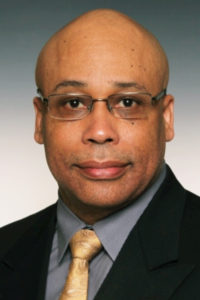
Whether we would like to admit it or not, we all have biases that play a role in how we see the world and how we operate in it. It’s important to be aware of these biases, especially when working in health care.
To reduce health-care disparities, we must be aware of our implicit and explicit biases.
Implicit bias refers to the unconscious attribution of particular qualities to a member of a certain social group, while explicit bias refers to the attitudes and beliefs we have about a person or group that we are conscious of.
Because these biases are so important to understand, CHEST Annual Meeting’s keynote speaker, Quinn Capers, IV, MD, will be talking about them during the Opening Session on Sunday in his talk titled “But I’m Not Racist, Sexist, Homophobic, etc! Implicit Bias and Discrimination in Health Care” at 10 amin the New Orleans Theater.
“It’s really relevant to all physicians and anybody working in healthcare because it turns out that we all have unconscious likes and dislikes that operate outside of our awareness, but even though they operate outside of our awareness, they can influence our behavior and they can influence the choices that we make,” Dr. Capers said.
Clinicians have to make decisions that are in the best interest of their patients every hour. Nowhere is it more important to make fair and just decisions than in medicine because the decisions clinicians make can affect people’s longevity, according to Dr. Capers.
Dr. Capers became aware of the concept of implicit bias around 7 or 8 years ago and was intrigued to learn more because he realized the impact it could have on patient care. He began to study the concept because he wanted to ensure health equity and reduce health-care disparities as a physician.
The idea that two people with the same diagnosis can receive two different levels of quality of care is one reason Dr. Capers wants to address this issue at the annual meeting. Not too long ago, Dr. Capers witnessed bias firsthand within his own workplace. With a group of trainees, Dr. Capers was serving as the physician in charge and was discussing with them the patient they were going to see. The patient had a particular ailment that would never require running a drug test for.
“But in this case as the trainees were presenting the patient to me they told me as a matter of fact that ‘Oh, and by the way, the drug test was negative,’ and so I asked, ‘Why did we even do a drug test because medically that wasn’t indicated here,’ and they kind of fumbled over their words and they didn’t really have a reason. But this was a young black person, the patient, and several days earlier this same team had admitted another patient, a young white patient, with the exact same symptoms, the exact same disease process, but nobody thought about ordering a drug test on this patient. And for the clinical scenario for the disease process, it would have been unusual for illegal drugs to have anything to do with what was going on with the patient,” Dr. Capers said.
While not sure if implicit or explicit bias was at play in this scenario, it’s obvious that discriminatory associations were made when assessing the patient. The trainees felt bad after discussing with Dr. Capers how their decisions were made with that patient.
“They weren’t aware that they were doing something that was discriminatory,” Dr. Capers said.
Associations like the ones made that day could be from images we see, movies and music videos we watch, from the stories we hear on the news, or repetitive stimuli that show a group of people one way, according to Dr. Capers.
Dr. Capers views it as important to understand the role biases play in our decision-making because clinicians take an oath to do the very best they can to treat their patients, to make good decisions, and to be fair.
“The fact is that unconscious bias or implicit bias can actually lead very well-meaning, egalitarian-thinking people to make decisions that are discriminatory. So a doctor can think that he or she is doing a great job at being equitable in that care that is delivered, treating all populations the same, but actually they may not be and they may not be aware of it because these unconscious associations influence our decision-making,” Dr. Capers said.
During his keynote speech, Dr. Capers will address strategies to overcome implicit and explicit bias. “The ability to talk to a large group of physicians at one time about this and also share some strategies to help us overcome our implicit bias is critically important and something I’m very excited about,” Dr. Capers said.
Beyond that, Dr. Capers is looking forward to attending the annual meeting and learning more about the latest innovations in pulmonary, critical care and sleep medicine.





